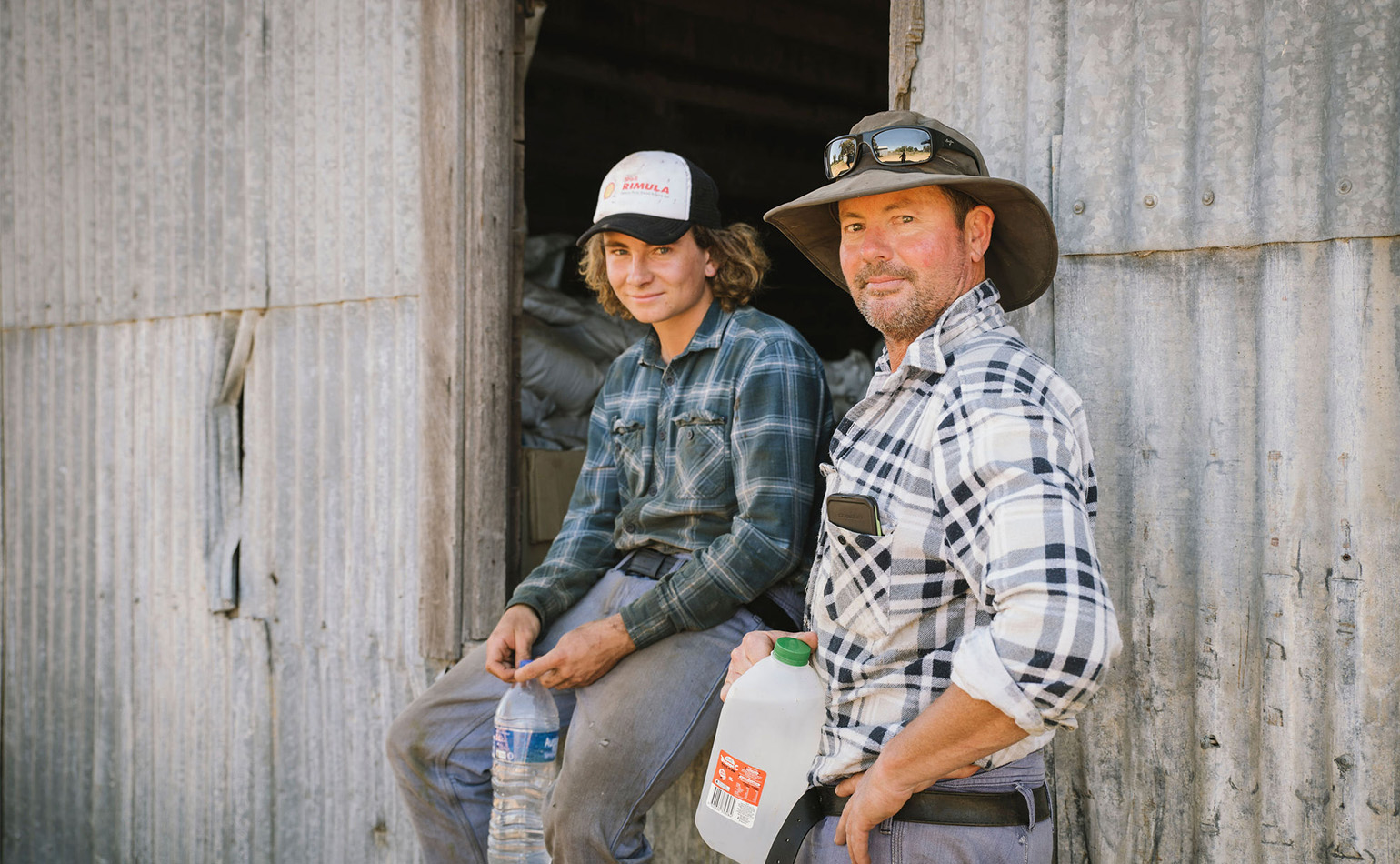By Dr Claire Baker and Dr Hanabeth Luke
The Surveying Farm Practices team has been digging deeper into the results of their survey in north central Victoria to examine what difference age makes to farm management decisions.
They conducted an analysis based on the landholder ‘types’ in the survey area – classed as either full-time farmer, part-time farmer, hobby farmer on non-farmer. This gave clear insights into the different issues facing different landholder types.
Despite differing social profiles, the average age of survey respondents was 62 years across all Local Government Areas (LGAs) and landholder types. They are exploring whether age is an important influence on farmer behaviour.
The team separated the data into two age groups of 55 and under, and 56 up, relating to established definitions of demographic ‘generations’. That of the ‘Baby Boomer’s (born between 1944 and 1964) and older, and ‘Generation X’ and below (born after 1964). They analysed the responses to see if there were any significant differences and found some interesting trends.
The first trend to emerge was a difference in key values. The younger cohort were more likely to answer that the primary value they attached to their property was as a viable business and a source of income, and that their guiding principles were ‘to look after their family and their needs’ and to create wealth and a financially profitable business.
By contrast, the older group were significantly more likely to answer that their guiding principles included environmental and social issues such as ‘protecting the environment and preserving nature’ and ‘fostering equal opportunities for all community members’.
The groups shared some key concerns such as changes in weather patterns. However, the issue of ‘uncertain/low returns limiting capacity to invest in my property’ emerged as being significantly more important to the younger landholders and further demonstrates the greater focus on business viability for this group.
Interestingly, this difference was expressed in self-assessed knowledge levels on soil management practices when related to productivity.
The younger group were more likely to indicate high knowledge of soil-related items such as:
- how to identify the main constraints to soil productivity on their property;
- production benefits of applying biological soil amendments and supplements; and
- how to use soil testing to prepare a nutrient budget to increase soil productivity.
By contrast, the older group assessed themselves as having higher knowledge on environmental and social issues, such as vegetation for native birds and how the land was managed prior to European settlement.
Regardless of the reasons why these generational trends have emerged – for example, the idea that the older generation have have now reached a life or business stage that is more financially stable and therefore time and energy can shift elsewhere, or even that there are different social norms between the generations – age-related targeting of messaging around soil-related issues may be useful. As a cohort, the younger seem more interested in soil issues, but primarily in relation to productivity concerns.
The ways in which these groups engage with information sources was also a useful finding. The younger group are substantially more likely to have attended a short course on farm management in the last five years (74% compared with 16% of older group) and were more likely to actively incorporate best-practice management, such as minimum or no tillage, in the last three years. This suggests a more actively engaged cohort in the younger group (which again may be related to life and business stage), yet there was stronger support for established best practice in the older group.
The older group had significantly stronger support for the statements ‘The benefits of stubble retention outweigh problems arising from the practice’, ‘The costs of applying gypsum to address soil sodicity are justified by increased production’, and ‘I feel a personal responsibility to be part of a soil health group’.
For sources of information, the younger group were more likely to look to web-based information than the older group, citing websites as the preferred source of information, and the older group were significantly more likely to look to Landcare than the younger group, with their preferred source of information being ABC Radio. Across age groups, the Bureau of Meteorology was a very popular source of information influencing on-farm decision making.
All of these trends indicate that age – whether as an indicator of life stage, experience or social norms – may be an important consideration in the factors impacting farm management practices and could be an important consideration when designing communication strategies.
The survey was part of a Soil CRC project to understand what farm management practices are being undertaken, and why farmers choose the farming methods that they do. The survey was undertaken by the Soil CRC thorough its partners Southern Cross University and the North Central Catchment Management Authority (NC CMA).
Similar surveys are being undertaken in each state of Australia and results will progressively be made available as the surveys are complete
The full report is available via the NC CMA website.
Read more about the project here.

